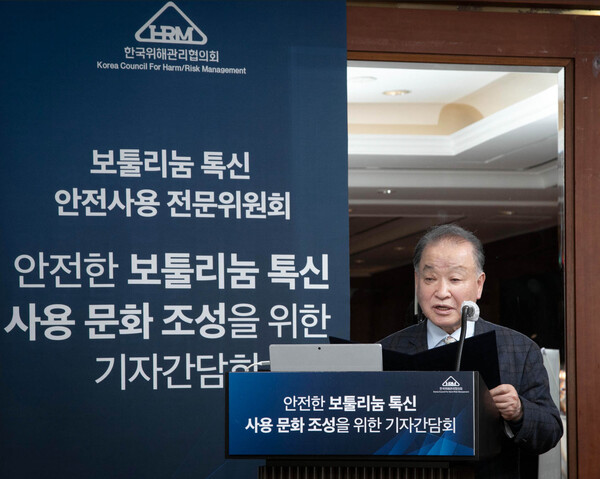Approximately seven out of 10 botulinum toxin (BTX) users in Korea are exhibiting signs of suspected resistance, underscoring the importance of a more cautious approach in determining the appropriate treatment cycle and dosage, experts said on Wednesday.
Botulinum Toxin Safety Committee, a group of six physicians and professors, highlighted the issues with BTX treatment during a press conference in southern Seoul.
Launched in October as a subcommittee of the Korea Council for Harm/Risk Management, the BTX safety committee is chaired by Professor Emeritus Moon Ok-ryun of Seoul National University.
BTX preparations are biopharmaceuticals that are used for cosmetic procedures such as frown lines, but they are also commonly used to treat migraines and hyperhidrosis.
Park Je-young, Director of Oracle Clinic Apgujeong branch, said that a survey of 1,000 people aged 20 to 59 who had undergone BTX treatments in Korea showed over 50 percent of the respondents had undergone more than two treatments per year on average and more than two areas at a time, confirming the high frequency and high dose of treatment in Korea.
In addition, according to the survey, 74 percent of patients said that they experienced a decrease in effectiveness, indicating a high rate of suspected resistance, and 44 percent said that they changed hospitals when the effectiveness decreased.
"As patients move from hospital to hospital, there is a lack of traceability of their treatment history, which leads to patients and medical staff repeating the procedure without being able to confirm whether resistance has occurred," said Park.
Park also said that patients' top questions about BTX were related to the safety of resistance and quality differences between products, which revealed the problem that patients are not provided with sufficient information in the medical field.
Kim In-kyu, Professor at Yonsei University, emphasized the need to strengthen domestic BTX regulations.

"In the U.S., there are pre-regulations for BTX, but in Korea, there is no such pre-regulation, making it difficult to prevent related accidents," Kim said. "It is necessary to introduce a specific qualification and permit system for BTX handlers and handling organizations."
Given the widespread use of BTX, safety concerns are often overlooked, said Moon Ok-ryun, President of the Botulinum Toxin Safety Committee.
He emphasized the importance of recognizing that BTX is a medication employed for various conditions, and one should consistently consider the potential risk of immunogenicity.

Related articles
- Huons Biopharma gets nod for P3 trial of BTX to treat frown lines
- Medytox triumphs over MFDS in legal battle blocking revocation of Meditoxin permit
- Growing competition among dermatology clinics drives aggressive patient attraction tactics
- Medytox shifts China expansion strategy to next-gen BTX
- ATGC licenses out botulinum toxin to Sinclair
- [Contribution] Government’s plan will likely expose whole nation to illegal BTX shots

